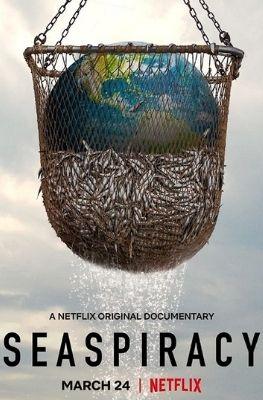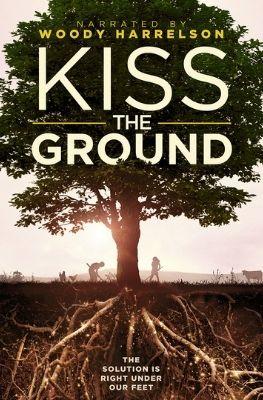In an era where environmental challenges are increasingly at the forefront of global discourse, documentaries have emerged as powerful tools for education and advocacy. They offer an in-depth exploration of the complex and often interconnected issues surrounding environmental conservation efforts. By blending compelling storytelling with scientific insights, these films not only illuminate the dire realities facing our planet but also highlight innovative solutions and the relentless dedication of individuals and communities striving for change. This article delves into a selection of must-watch documentaries that provide critical perspectives on conservation, examining their impact on public awareness and policy, and assessing their role in shaping the future of environmental stewardship.
Exploring the Impact of Environmental Documentaries
Environmental documentaries have emerged as powerful tools for raising awareness and driving change. By combining compelling narratives with stunning visuals, these films provide a deep dive into the pressing issues facing our planet. They not only highlight the consequences of human actions but also showcase innovative solutions and grassroots efforts aimed at conservation. Through the lens of these documentaries, viewers gain insight into the complex relationship between humanity and the natural world, fostering a greater understanding and sense of responsibility.
These documentaries often serve as catalysts for action, inspiring viewers to make informed choices and engage in sustainability initiatives. They bring to light stories of resilience and innovation, emphasizing the importance of individual and collective efforts in preserving our environment. Here are some key elements explored in these impactful films:
- Climate Change: Examining the effects of global warming and strategies for mitigation.
- Wildlife Conservation: Showcasing efforts to protect endangered species and their habitats.
- Pollution and Waste Management: Addressing the challenges of plastic waste and pollution.
- Renewable Energy: Highlighting advancements in sustainable energy solutions.
- Community Engagement: Focusing on local and indigenous practices in conservation.

Insights into Filmmaking Techniques and Storytelling
Exploring the craft behind environmental documentaries reveals a fascinating blend of filmmaking techniques and compelling storytelling. These documentaries often utilize breathtaking cinematography to capture the raw beauty of nature, employing aerial shots and time-lapses to evoke a sense of wonder and urgency. The use of archival footage, interviews, and real-time events helps create a narrative that is both informative and emotionally engaging.
- Visual Storytelling: Directors often use contrasting visuals to highlight the impact of human activities, juxtaposing serene landscapes with scenes of destruction.
- Character-driven Narratives: By focusing on individuals or communities fighting for conservation, filmmakers provide a personal connection that enhances audience engagement.
- Sound Design: The strategic use of natural sounds and music underscores the emotional tone and reinforces the documentary’s message.
By skillfully weaving these elements together, filmmakers craft powerful narratives that not only inform but also inspire action, making these documentaries essential viewing for anyone interested in environmental conservation.

Analyzing the Influence on Public Awareness and Policy
Documentaries play a pivotal role in shaping public consciousness and influencing policy decisions regarding environmental conservation. These visual narratives often highlight urgent ecological issues, bringing them to the forefront of public discourse. By presenting compelling stories and factual data, they engage viewers emotionally and intellectually, prompting societal shifts and calls to action.
Several key documentaries have sparked widespread debate and led to tangible policy changes. Consider the following impacts:
- Increased Awareness: By showcasing the effects of deforestation, pollution, and climate change, documentaries have heightened public understanding and concern.
- Policy Advocacy: Films often serve as catalysts for legislative discussions, encouraging governments to implement stricter environmental regulations.
- Grassroots Movements: The stories told inspire grassroots activism, empowering communities to demand sustainable practices and accountability.
Through their evocative storytelling and investigative prowess, these documentaries are instrumental in bridging the gap between scientific knowledge and public policy, ultimately fostering a more informed and proactive society.

Recommendations for Essential Viewing on Conservation Efforts
- Our Planet: This visually stunning series, narrated by Sir David Attenborough, dives into the beauty and fragility of our natural world. With breathtaking cinematography, it highlights the interconnectedness of ecosystems and the urgent need for conservation. It offers insights into the impact of human activities and emphasizes sustainable solutions.
- Chasing Coral: This documentary follows a team of divers, photographers, and scientists as they embark on an epic adventure to document the disappearance of coral reefs. Through innovative technology and captivating storytelling, it sheds light on the critical state of our oceans and the role coral reefs play in marine biodiversity.
- The True Cost: While not solely focused on environmental conservation, this documentary explores the fashion industry’s impact on our planet. It provides a compelling look at the environmental and social costs of fast fashion, urging viewers to consider sustainable alternatives and more responsible consumer habits.
Each of these documentaries offers a unique perspective on conservation efforts, blending compelling narratives with critical environmental insights. They serve as essential viewing for anyone interested in understanding the challenges and solutions related to preserving our planet.



